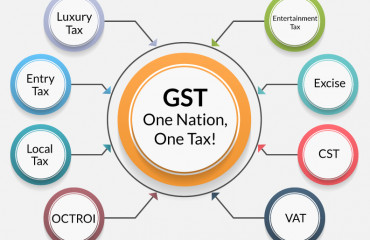
The budget did well to incline taxpayers towards a concessional tax regime that wipes the slate clean for taxation simplicity and also gives us a case study in behavioural economics
The budget did well to incline taxpayers towards a concessional tax regime that wipes the slate clean for taxation simplicity and also gives us a case study in behavioural economics
In a country long accustomed to state paternalism, as captured by the Indian phrase 'mai baap sarkaar', the use of its libertarian version, as proposed by nudge theory, is always a marvel. The proposition of this theory is that it is not just useful, but also ethical and at times even ideal to influence behaviour by nudging people in desirable ways without denying them their freedom of choice. India's Union budget deployed a classic nudge this week by making its concessional income-tax regime the default option, a change that means opting for the old scheme will require us to act, and so the force of inertia could move taxpayers in the desired direction. Personal taxation shorn of a hoary jumble of exemptions is desirable as a matter of principle—for its simplicity. The easier it is for us to compute our tax liability, the better it is. The scope for confusion over law adherence must be kept minimal. This canon cannot be stretched too far, though. A flat rate applicable to all, for example, would be unfair to modest earners who must stretch their money to get by, just as filling up coffers with only indirect levies like GST would impose a lopsided burden on the rich and poor. But once this caveat is taken into account, we should go by this enduring advice of advertising mavens: Keep it simple, silly.
The concessional option has income slabs with marginal rates of tax that ascend less steeply, but offers no tax-free crannies to park money. This makes it harder to game. It suits those who cannot gather the documents needed to claim deductions and others who would rather keep clean-slate records of what they earn and pay a fuss-free fraction of it. While the old regime's tax-offs for insurance and investments can be regarded as policy nudges too, the concessional one is decidedly more libertarian in outlook. It is not loaded in favour of any normative lifestyle—say, with two school-going kids and an urban home on either rent or loan, the expenses on which could vary vastly. Rather than have us tick designated boxes for tax relief, it is conceptually designed to give us greater liberty on what we do with our salaries. All added up, a rise in discretionary income could do our economy a favour. Yet, concessional taxation found so few takers after its 2020-21 launch that it required bigger concessions as a sweetener. The budget for 2023-24 proposes to lift its basic exemption limit to ₹3 lakh, rejig tax slabs to ease the burden on most brackets, and hike the tax rebate limit to ₹7 lakh. The Centre will also reduce the new regime's burden on top-bracket earners drawing over ₹5 crore annually from an extortive rate of nearly 43% of inflows to 39%. These tweaks are expected to cost the exchequer around ₹37,000 crore in lost revenue next fiscal year, which can be viewed as a subsidy to simplify the state's fiscal contract with taxable earners. If it can attract taxpayers who have been sop-happy so far—heavy investors in approved schemes seem the likeliest to opt out—it would qualify as a notable tax reform.
Why not phase out India's old income tax regime? A bunch of state-run institutions which depend on its tax sops for a chunk of their business would protest, perhaps, but a good answer is that it would no longer be a nudge then. Were it to be forced upon us, it wouldn't be libertarian anymore. With choice on offer, it's a case study in behavioural economics. And unlike some other proposals, like a sharp hike in India's at-source levy on money sent abroad, it adheres creditably to basic canons of taxation.
